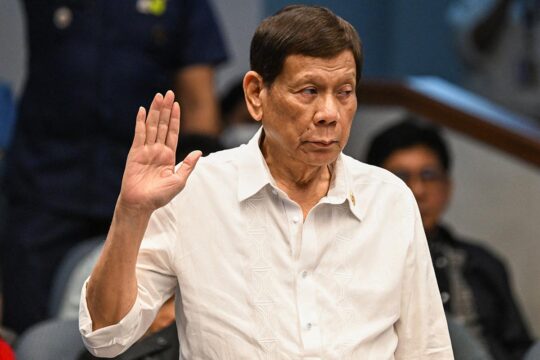Burundi, which elects its president on May 20, has been mired in a political crisis since the last election in 2015, at the cost of 1,200 lives.
The violence, sparked by opposition to Pierre Nkurunziza's bid for a third presidential term, stoked fears of a return to civil war akin to the 1993-2006 conflict in which 300,000 people died.
Nkurunziza however surprised observers when he announced in 2018 that he would not seek another term in the election to take place this year, with the first round on May 20, despite a new constitution allowing him to do so.
Here is a recap of the past five years of unrest.
- Demonstrations erupt -
In April 2015, a day after Nkurunziza is declared candidate for a third term by his ruling CNDD-FDD party, thousands gather in the capital, defying a ban on demonstrations.
It is the start of six weeks of almost daily protests that the police clamp down on with force.
The opposition says the move to keep Nkurunziza in power as president, a position he has held for a decade, is unconstitutional and violates a peace deal that ended the civil war.
Nkurunziza says his first term, secured in 2005, does not count as he was elected by parliament -- not the people -- as part of the transition from war.
- Failed coup -
In May a coup attempt led by a former army chief fails. Nkurunziza fires his defence and foreign ministers.
In June parliament chief Pie Ntavyohanyuma goes into exile, on the eve of legislative elections boycotted by the opposition, joining a long list of opposition leaders, journalists, members of civil society and disillusioned ruling party members.
In July, Nkurunziza is re-elected.
- Spiral of attacks -
In August Nkurunziza's right-hand man, General Adolphe Nshimirimana, is killed in a rocket strike.
The former head of Burundi's army during the civil war, Colonel Jean Bikomagu, is assassinated the same month.
In December at least 87 people are killed in coordinated attacks on military sites that trigger fierce reprisals from the security forces.
In April 2016, Tutsi general Athanase Kararuza and his wife are killed.
- 'Genocide' risk -
In July 2016, the UN Security Council authorises the deployment of 228 UN police in Burundi. Bujumbura rejects the resolution.
A UN probe in September accuses the government of serious rights violations, warning of a risk of "genocide".
The following month Burundi informs the UN that it will leave the International Criminal Court (ICC), quitting a year later.
In December, Nkurunziza hints he could stand for another term in the 2020 election.
In January 2017, Human Rights Watch accuses members of the ruling party's youth wing, the Imbonerakure, of having killed, tortured and beaten dozens of people. In April the UN accuses them of having encouraged the rape of opponents.
- Heightened repression -
In September the UN extends a rights probe for another year.
In November the ICC opens a full investigation into allegations of crimes against humanity in Burundi.
In May 2018, Burundi approves in a referendum constitutional reforms that would enable Nkurunziza to rule until 2034, after a campaign Human Rights Watch says was marked by increased repression and abuses.
- Nkurunziza not to stand -
In June, Nkurunziza announces that he will not stand in 2020.
In September, UN investigators warn that serious rights violations, including crimes against humanity, are continuing in Burundi, pointing to Nkurunziza's hate speech.
In January 2020, lawmakers agree a golden parachute for Nkurunziza. The ruling party picks General Evariste Ndayishimiye as its presidential candidate.
In February the key opposition party chooses Agathon Rwasa.
Nkurunziza is declared "supreme guide for patriotism" by lawmakers.


